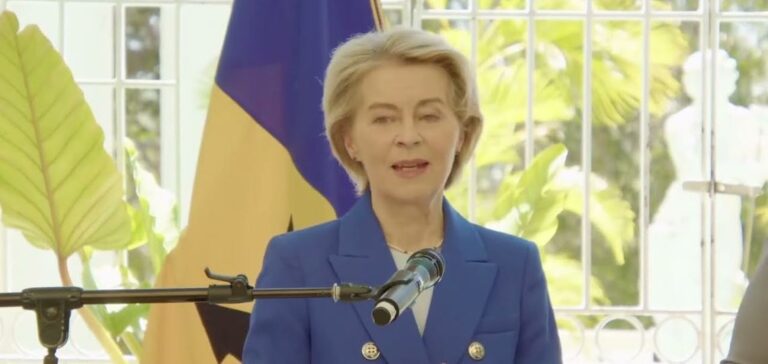The European Union (EU) has announced its support for the Renewstable® Barbados (RSB) project, a green hydrogen power plant developed by HDF Energy. This project, located at Harrow Plantation in the southeast of Barbados, marks a significant step towards the island’s energy transition, which aims to achieve 100% renewable energy consumption by 2030. The European Investment Bank (EIB) is actively involved in financing the project, offering a combination of guarantees and investment grants.
A key energy transition for Barbados
The RSB project aims to integrate large-scale solar energy production, coupled with a green hydrogen storage system, thereby providing stable and reliable electricity 24/7. Unlike other forms of intermittent renewable energy, this technology allows for continuous energy supply, thus reducing the island’s dependence on imported fossil fuels. The project will replace 13 MW of fossil-fuel-based production, contributing to a cleaner energy mix.
During the launch ceremony on February 19 at the official residence of the Prime Minister of Barbados, Ursula von der Leyen, President of the European Commission, emphasized the importance of this project for the energy security of the Caribbean. “It is essential that renewable energy is produced locally,” she said, discussing the impact of green hydrogen on energy independence and sustainability in the region.
International support to ensure the project’s viability
In addition, the project also benefits from the support of other international financial institutions, such as the International Finance Corporation (IFC), IDB Invest, and the Green Climate Fund (GCF). These partnerships ensure the project’s viability and enhance its potential for similar initiatives across the region.
The development of the Renewstable® Barbados plant is part of a larger energy transition dynamic in the Caribbean. Following the success of the CEOG (Centrale Électrique à Oxyde de Gaz) project in French Guiana, HDF Energy, through its regional Vice-President Thibault Menage, expressed optimism about the prospects of extending this low-carbon technology to the regional industrial and maritime sectors. “We view Renewstable® Barbados as a catalyst for the region’s future development,” he stated.
HDF Energy’s long-term commitment in the Caribbean is further strengthened through a solid partnership with international stakeholders, aiming to promote sustainable and bankable energy solutions in this geographical area.






















